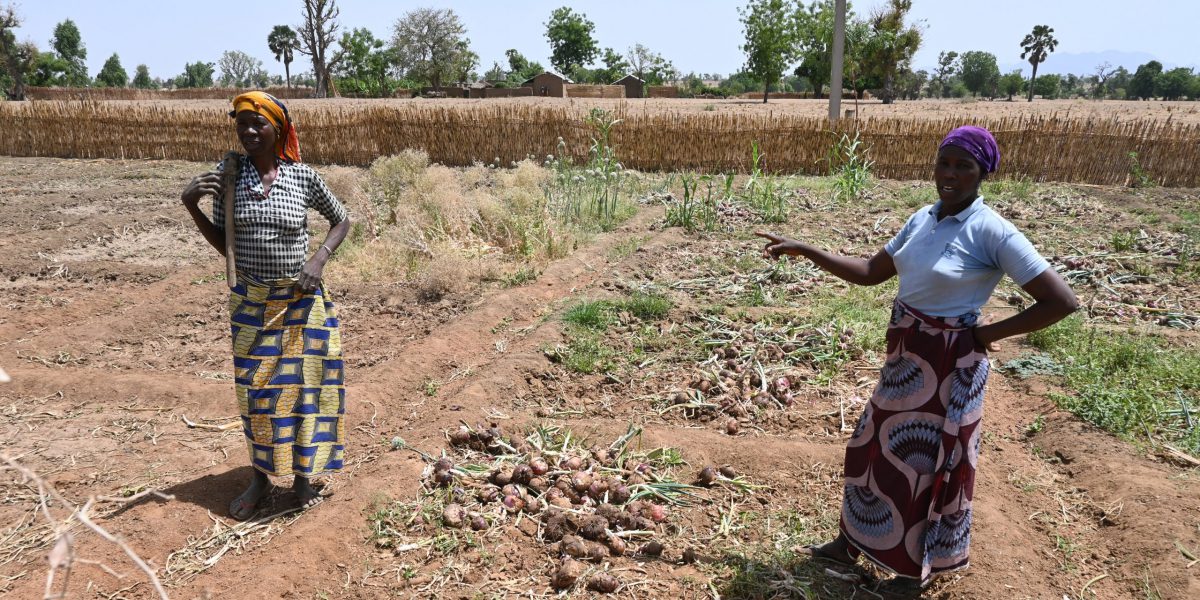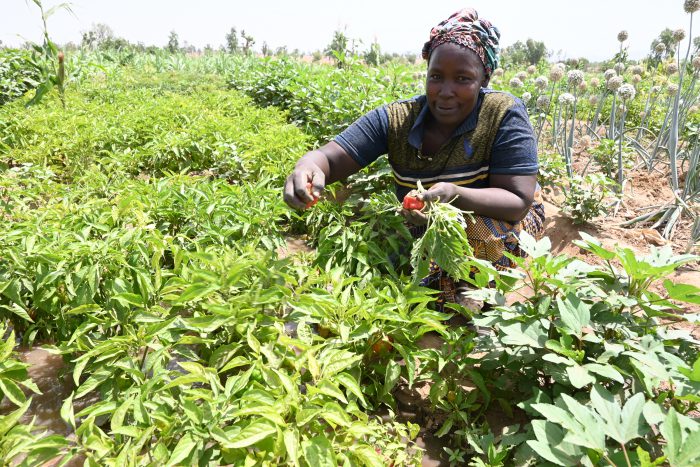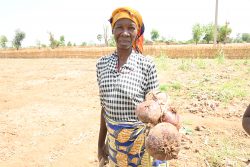JRS Nigeria: Farmers Field School Gives Women a Chance to Harvest Their Futures
26 April 2022

JRS has been operating in north-eastern Nigeria since 2018 to address the challenges faced by refugees, Internally Displaced Persons (IDPs), and local women who struggle to find accessible food, drinkable water, and adequate healthcare.
JRS offers several agricultural training opportunities through the Farmers Field School (FFS) and Farmers Business School (FBS), as well as training for teachers, young entrepreneurship programs and classes for children out of school.
Here are the stories of two women who, thanks to the FFS training they received from JRS, have been able to not only provide for their families but help bolster their communities as well.
Rahila Joseph
Six years ago, Rahila fled from the Boko Haram attack in Chibok with her six children. As a stranger in a completely new community, she did not have many ways to provide for her family. She relied completely on begging and food aid distributions as a means of provision but what she received was never enough for her large family.
“I always wanted to plant more crops to supplement my family’s diet, but I could not afford the seeds. I could only grow groundnuts,” she recalled. Beyond seeds, Rahila lacked farming tools, supplies, and training on the techniques to grow crops.
Last year, Rahila was one of the participants in JRS’s Farmers Field School. As part of her training, she received some seeds and learned how to plant crops in multistage gardens, in tins, and on ridges. Among the skills she learned were how to transplant seedlings as well as make organic fertilizers. Her crops have varied including eggplant, onions, cabbage, passion fruit, maize, tomatoes, and her family has been enjoying the harvest.

“My life has changed a lot. I’m happier now that my children can easily access food,” she said. “I no longer have to wait for aid workers to visit me. I’m able to sell some of the harvested crops, save money for other household expenses, and for educating my children. My children are healthy, and they no longer frequently get sick because of starvation.”
During the training, Rahila shared what she learned with other internally displaced women, showing them how to plant and help their crops grow. “I have learned that the behavior of vulnerable people can be changed through JRS because it’s simple. Even the elderly can manage,” she says, “Everyone around me is interested. Someone just took some maize seeds to plant. Hopefully, they will grow, and she will harvest bountifully like me.”
Asabe Aba
When Boko Haram attacked the Chibok community in 2015, Asabe was forced to flee with her children. She lost her family’s only source of income because she was forced to abandon her kiosk where she sold snacks. The entire family bore the brunt of this unfortunate event.
“I used to make and sell snacks in schools, but now I no longer have a place to make them, so I lost that source of income,” says Asabe, who described her frustration, “The assistance we got was not in any way enough for all of us.” Asabe depended on humanitarian aid for food and crops that she grew on rented land to feed her five children, plus her three nieces and nephews who also depended on her. She spent much of her time farming to make sure she had enough for the whole family.

In a turn of events, she testified, “I received seeds from Jesuit Refugee Service, and I planted them. We have started harvesting some vegetables, which the children like so much. I also planted some tomatoes last year and we are enjoying them now.” Her face is now full of smiles as she walks toward her farm.
Through the FFS, Asabe learned not only how to grow her crops, but how to make her harvest last. She has not had to buy onions at the market after her bountiful harvest early this year since she still has some onions in storage. Recently, the market price for onions soared and Asabe is glad she learned post-harvest handling and how to make a profit.
“I managed to store lots of [onions] for my family. Sometimes my neighbors borrow from me, and I love to share with them. I have already transplanted more onions and tomatoes in my farm and I’m helping other women here as well,” she proudly explained, “Because I no longer have any other source of income, I’m focusing on farming.”
Asabe rents land from her host community and grows other farm products such as sweet potatoes, beans, tomatoes, onions, collard greens, and maize. “I am thankful to Jesuit Refugee Service for the knowledge and seeds I have received.”
The FFS is made possible by JRS’s partnership with Alboan.



